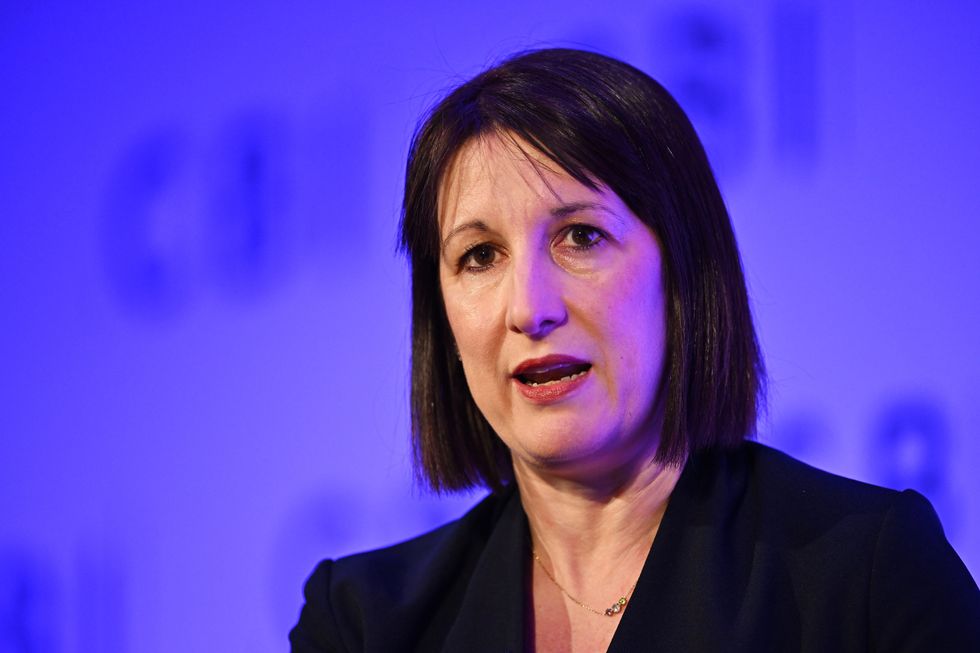Camilla Tominey grills Peter Kyle MP on Labour's 'failure' to stabilise the "economy"
GB NEW
The FTSE has reached a new record high following a turbulent time for the Chancellor
Don't Miss
Most Read
Trending on GB News
The FTSE 100 has surged to its highest level ever recorded, breaking through the previous record set in May last year. This comes amid a turbulent couple of weeks for Chancellor Rachel Reeves amid fluctuating gilt yields and falling inflation.
London's top index climbed more than one per cent on Friday morning to reach 8,480.57, surpassing the previous peak of 8,474.41. The rally came as investors responded to growing expectations of future interest rate cuts from the Bank of England.
The milestone for the economy was achieved amid a weakening pound, which dropped 0.3 per cent against the US dollar to 1.22. The FTSE 100's strong performance has been supported by its internationally-focused nature, with the index typically benefiting from a stronger dollar.
As it stands, the blue-chip index is up 3.5 per cent since the start of the year, pushing marginally ahead of its previous record level from last May. Mining companies led the surge, with Antofagasta, Glencore and Anglo American among the biggest gainers on the index.
Housebuilders also showed strong performance, with Persimmon, Taylor Wimpey and Barratt Redrow posting significant rises. The construction sector's gains were particularly notable, with companies like Persimmon, Taylor Wimpey, Barratt Redrow and Berkeley Group seeing rate increases.
Do you have a money story you’d like to share? Get in touch by emailing money@gbnews.uk.

The FTSE has reached a new record high following a turbulent time for the Chancellor
GETTY
These gains came as recent updates showed robust forward order books for the housebuilding sector. The combination of potentially lower interest rates and strong order books has helped boost investor confidence in construction stocks.
Most stocks across the index were moving higher, contributing to the record-breaking performance. Richard Hunter, head of markets at interactive investor, expressed surprise at Friday morning's rally.
"US markets faltered after a blowout session the previous day, while the surprising upstart came in the form of the FTSE 100, which has set the early pace and blew past its previous record high in opening trade," he said.
Hunter noted the particular strength in construction sector shares. Prior to winning the 2024 General Election, Prime Minister Keir Starmer pledged to cut red tape to Britain building homes again as millions continue to be priced out the property market.
"The housebuilders were also strong, given a combination of potentially lowering interest rates and some recent updates which have shown robust forward order books, with rises of two per cent or more for the likes of Persimmon, Taylor Wimpey, Barratt Redrow and Berkeley Group," Hunter explained.
The market expert highlighted that the FTSE 100 has advanced by 3.5 per cent this year. This performance has pushed the index marginally ahead of its previous record level set in May. Recent economic data has strengthened expectations of potential interest rate cuts from the Bank of England.
A surprise drop in inflation saw the consumer prices index fall to 2.5 per cent in December from 2.6 per cent in November. This decline in inflation has boosted confidence that the Bank's policymakers may reduce rates at their February meeting.
Gross domestic product (GDP) figures released on Thursday showed the UK economy grew by just 0.1 per cent in November. This growth was slower than economists had anticipated. The lower-than-expected economic data has added weight to calls for monetary policy easing to support economic growth.
The recent figures have also helped stabilise financial markets following a period of volatility. This period of turmoil had previously seen the pound drop sharply and government borrowing costs rise to multi-decade highs.
Government bond yields showed a notable decline on Friday, reflecting broader market shifts. The yield on 30-year gilts dropped by about five basis points to 5.19 per cent.
LATEST DEVELOPMENTS:

Rachel Reeves is under scrutiny over her handling of the economy
Getty ImagesThis marked a significant change from earlier in the week when the yield had reached approximately 5.46 per cent. Similar movements were seen in 10-year gilt yields, which also decreased by around five basis points to 4.63 per cent.
The 10-year yields had previously touched 4.9 per cent earlier in the week. The movements in bond yields came alongside the FTSE 100's record-breaking performance.
Analysts are pricing in another interest rate cut from the Bank of England's Monetary policy Committee (MPC) on February 6, which would likely see the base rate fall to 4.5 per cent.
Borrowers, including those in debt and mortgage holders, have been saddled with hiked repayments as a result of the central bank's decision-making in recent years, while savers have benefited.








